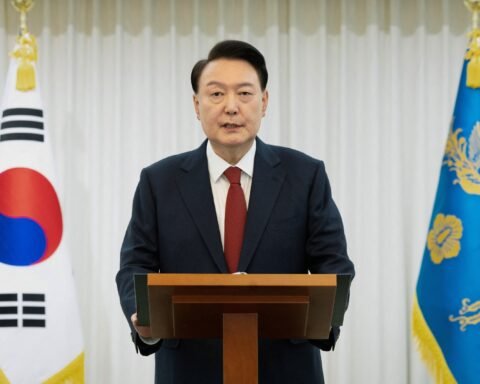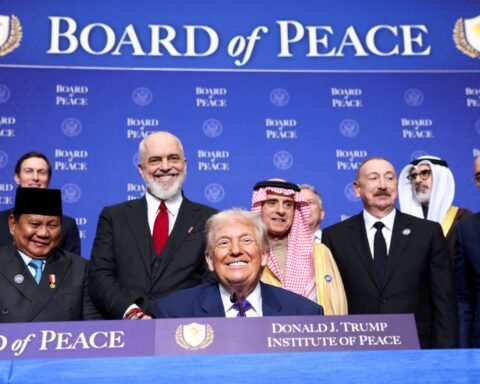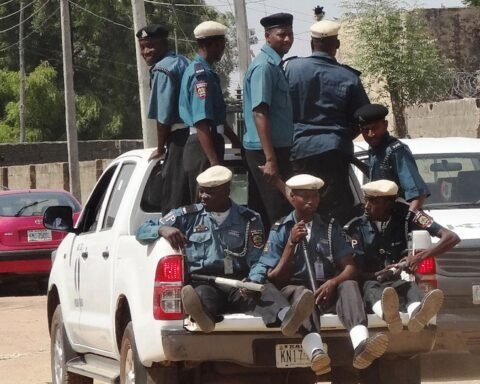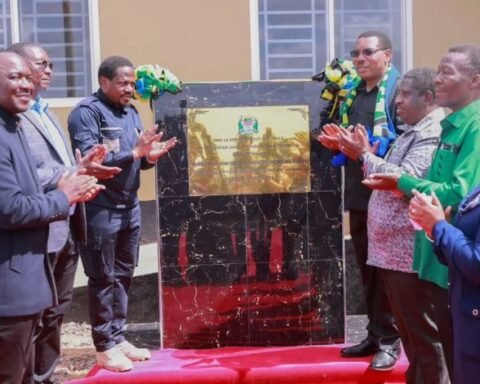Amid weeks of protests and political turmoil, Mikheil Kavelashvili, a former professional footballer and far-right politician, was sworn in as Georgia’s president on Sunday in a ceremony held in the nation’s parliament in Tbilisi.
The 53-year-old pledged to serve the country’s interests, taking his oath on the Bible and the Georgian constitution in front of Orthodox Church clerics.
However, the swearing-in ceremony did little to calm tensions. Outside the parliamentary building, protesters waving red cards—a nod to Kavelashvili’s football career—gathered in large numbers to voice their disapproval. Demonstrators accused the political leadership of steering Georgia away from its pro-European path and closer to Russian influence. Police intervened during clashes, detaining six people.
Adding to the dramatic backdrop, outgoing President Salome Zourabichvili refused to attend the inauguration, calling the entire process illegitimate. Addressing her supporters earlier in the day, she declared, “This parody being staged in parliament is not what Georgia deserves.” She reiterated her call for fresh elections, rejecting the outcome of Kavelashvili’s election by an electoral college on December 14.
A staunch advocate for Georgia’s European Union membership, Zourabichvili vacated the presidential palace but maintained that her legitimacy as leader remained intact. Her supporters had hoped she would continue to challenge the ruling Georgian Dream party’s decisions by refusing to step aside.
Also Read; CCCC Teams Up with DIT to Shape Future Engineers
The situation stems from the controversial October 26 parliamentary elections, which were marred by allegations of fraud and voter intimidation. The Georgian Dream party, which nominated Kavelashvili, won those elections but has faced widespread criticism for its decision to suspend EU accession talks until 2028. Protesters have since been calling for the elections to be repeated and for the country to recommit to its European ambitions.
Critics worry that Kavelashvili’s presidency, largely symbolic though it may be, signals an authoritarian turn under the ruling party, which is accused of aligning too closely with Russian interests. These concerns are heightened by recent international developments, including U.S. sanctions against the Georgian Dream party’s founder, billionaire Bidzina Ivanishvili, for allegedly undermining democratic institutions in Georgia.
The ongoing unrest reflects deeper frustrations within Georgian society about the country’s direction. Protesters fear that a pivot away from Europe could jeopardize democracy and stability, while supporters of the ruling party dismiss such fears as unfounded.








Im no longer certain where you’re getting your info, however good topic. I needs to spend a while studying much more or working out more. Thanks for wonderful information I used to be searching for this info for my mission.